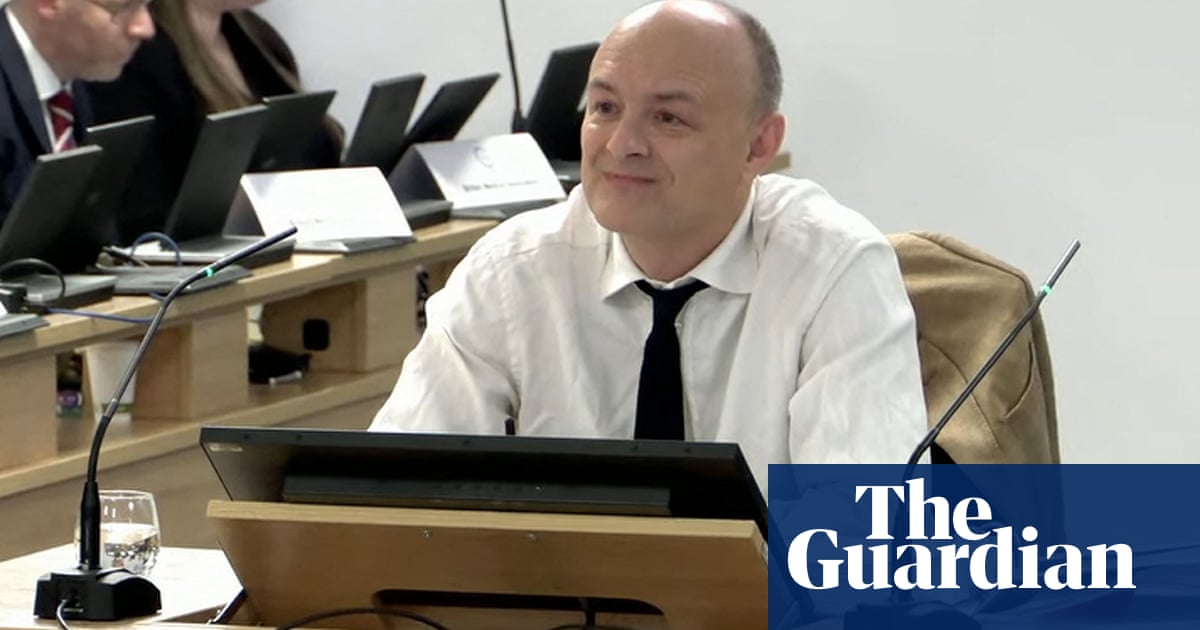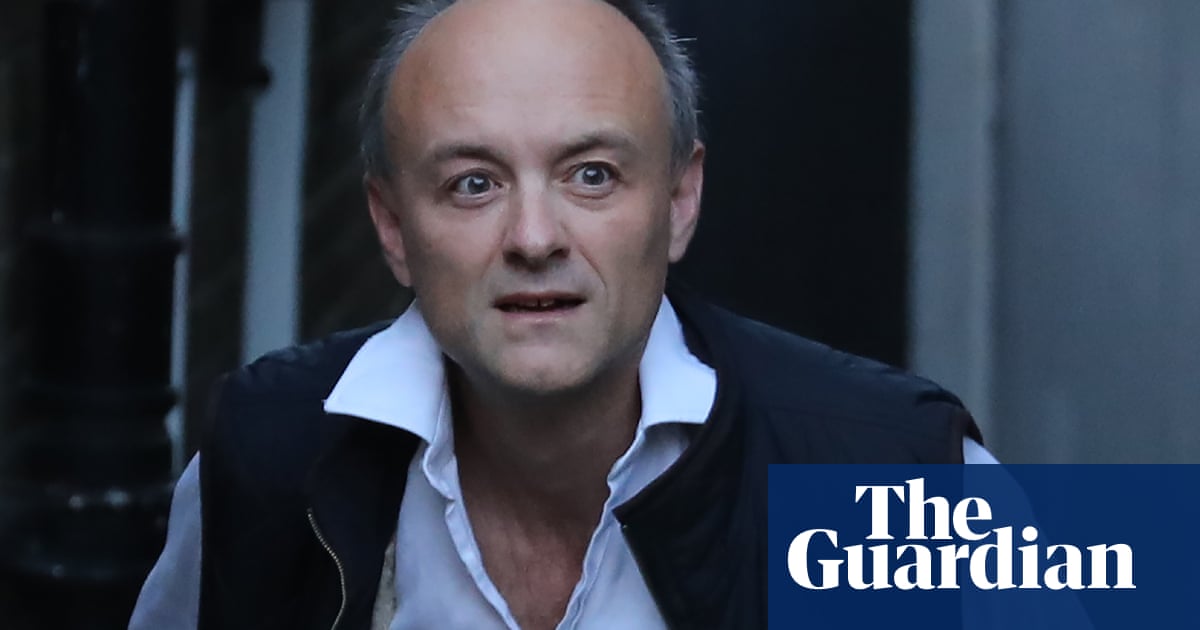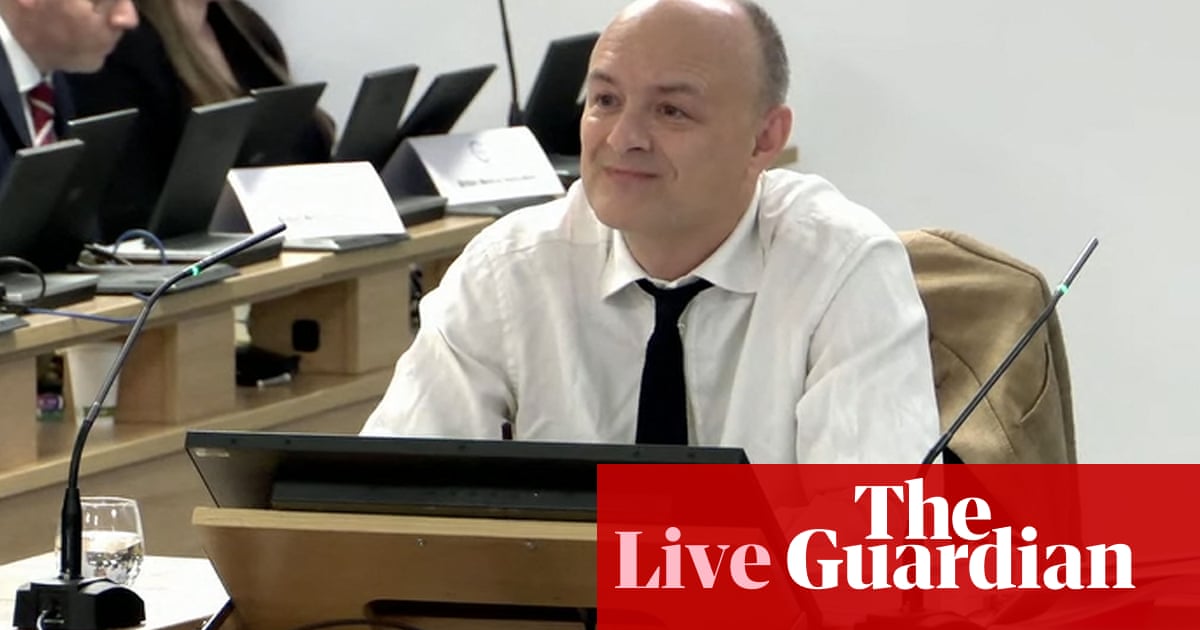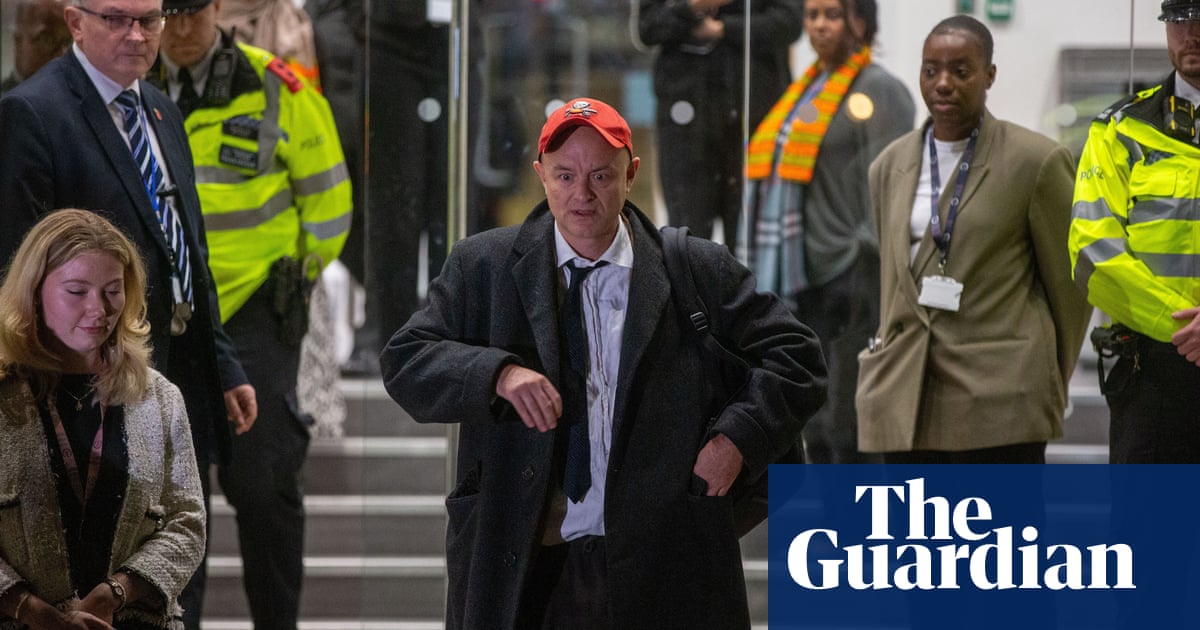
Dominic Cummings is facing a possible parliamentary inquiry following claims No 10 is exerting excessive control over ministers’ special advisers, the Guardian has learned.
The FDA union, which represents more than a dozen “spads”, has asked the public administration and constitutional affairs committee to investigate why the prime minister’s chief of staff has been given extra powers. It follows concerns that Cummings, on behalf of Boris Johnson, has centralised power in No 10 and is impeding the roles of cabinet ministers and parliament.
According to latest government figures, there were 109 special advisers in December, more than half of whom were new to government, costing just under £10m a year. In the past, cabinet ministers typically hired and oversaw their own special advisers, who are political appointees paid from the public purse, though the prime minister approved all appointments.
Since September, the Cabinet Office has required advisers to sign new contracts, which say the responsibility for their conduct and discipline will be jointly held between the appointing minister and the PM’s chief of staff.
Dave Penman, general secretary of the FDA, has written to William Wragg, chair of the committee, saying there is mounting evidence that the role of spads has been radically altered to break the link with ministers and put Cummings in charge.
“We have a cadre of special advisers with little security of employment and who are being directly managed by No 10 through the PM’s chief of staff. Even without the concern over how this power over employment is being deployed, it is clear that there is a deliberate approach from No 10 to fundamentally change the nature of the role,” he wrote.
The committee has agreed to examine the complaint, which could result in Cummings being asked to give evidence to MPs.
The FDA letter claimed that weekly meetings for special advisers, chaired by Cummings, are being used to enforce the idea that spads are now run from Downing Street, not by ministers.
“There was a consistent message that special advisers were being directed in their work and essentially centrally run. The conduct of these meetings was also criticised as being overly confrontational,” Penman wrote.
Following the election, Penman added, spads were being used as a central resource and moved around different departments by No 10.
“This resulted in some special advisers being left without posts, and concern that the process for determining who stayed, moved or left not only lacked transparency, but was being used to exert control and dilute the relationship between minister and adviser,” he wrote.
One former permanent secretary told the Guardian there was a belief in Whitehall that Cummings was forcing out independent-minded advisers to create a pool of spads who could keep an eye on departments. “The concept of ‘No 10 narks’, placed in departments to keep a close eye on ministers and civil servants, is gaining ground,” he said.
Cummings is facing a sex discrimination claim from Sajid Javid’s former special adviser Sonia Khan, after she was frogmarched out of Downing Street by a police officer last year. Javid resigned as chancellor in February after refusing to fire all five of his advisers.
Before Johnson, special advisers were chosen by ministers themselves and worked directly to them, but were ultimately hired by the PM.
In a further development, the Conservative party has launched a new process for the hiring of media and digital staff using the website www.spadjobs.uk.
In a break from tradition, the strategic advisory firm Hanbury Strategy will do the initial recruitment. Paul Stephenson, a founding partner of the firm, was director of communications for the Vote Leave campaign.
Though the initial screening will be done by Hanbury, the new intake of spads will only be appointed if the government’s director of communications, Lee Cain, approves, which is said to be the normal hiring convention. The Conservative party did not respond to a request for a comment.
Cummings, the former Vote Leave campaigner who worked closely with Johnson during the general election, has faced intense criticism for driving 260 miles to Durham with his sick wife during the height of the coronavirus pandemic and making a further 52 miles round trip to Barnard Castle to test his eyesight.
One of Johnson’s closest allies accused Cummings last week of overseeing a reign of terror in Downing Street. Tim Montgomerie, the creator of the ConservativeHome website and an adviser to Johnson until February, said: “He [Cummings] shouldn’t be in a leadership position, he shouldn’t be in a dominant position. And I’m afraid that is what has happened inside Downing Street.”
A spokesperson for the select committee said MPs were considering whether to hold an evidence session or launch a full inquiry in light of a backlog of inquiries because of Covid-19.
“It will remain something the committee will be looking at closely but it remains to be seen if it will be [examined by an] individual evidence session or a full inquiry,” he said.
No 10 did not respond to a request for a comment.












